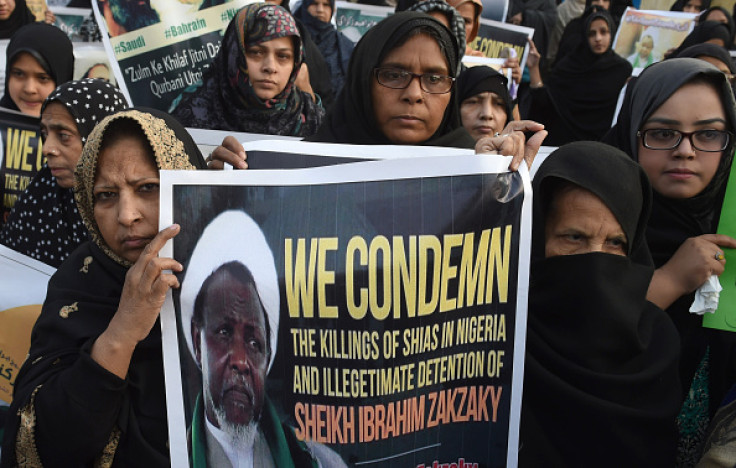Nigeria Zaria killings: IMN releases names of 700 missing Shias as Zakzaky returns to Abuja

A Shia Muslim organisation has released the names and photographs of 705 people believed to be still missing following clashes with police in northern Nigeria in December 2015 . The Islamic Movement in Nigeria (IMN) said the list features the names of "brothers and sisters" declared missing following an army attack in the city of Zaria, Kaduna state, between 12 and 14 December.
What is the Islamic Movement In Nigeria?
The Islamic Movement in Nigeria (IMN) is a religious and political organisation that aims to create an Islamic state through an Islamic revolution like the one that occurred in Iran in 1979.
Both Shia and Sunni Muslims are part of the movement, led by Ibrahim Zakzaky. IMN members often hold processions, mainly in Zaria, to raise awareness of their movement, which also advocates the liberation of the Palestinian territories controlled by Israel.
The attack occurred after the army accused sect members of trying to kill the chief of army staff, Tukur Buratai, by erecting a makeshift roadblock on a road his convoy was travelling on during an official visit in the state.
IMN denied the allegations and accused the police of attacking and killing hundreds of unarmed people. Human Rights Watch (HRW) accused soldiers of using unjustified violence against the sect members and killing at least 300 people.
The army confirmed people were killed in the clashes, but never commented on the death toll. Speaking to IBTimes UK, defence spokesperson Rabe Abubakar said: "It was an unfortunate incident. People should behave in a different manner and respect everyone's rights."
IMN leader flies to France
During the raids in Zaria, the army arrested IMN leader Sheik Ibrahim Zakzaky and dozens of members of the movement. The alleged army violence and mass-arrest prompted protests in several states in northern Nigeria, amid fears Zakzaky could be killed while in police custody.
Zakzaky's whereabouts were unknown until the Vanguard newpaper later revealed that he had been transferred from Kaduna to a safe house in Abuja, Nigeria's capital. On 25 January, the newspaper said the sect leader returned to Abuja after being flown to France for treating gun injuries allegedly sustained during the police raid at his house.
Meanwhile, Iran urged the Nigerian government to respect Shia Muslims in the country. Iran's Grand Ayatollah Lotfollah Safi Golpaygani also expressed concern over the alleged killings and urged the international community to condemn it.
This is not the first time the Nigerian army has been accused of opening fire on IMN members. In July 2014, at least 34 members of the sect – including three of Zakzaky's sons – were killed by the army in the aftermath of a pro-Palestinian protest in Zaria.
The incident sparked international outrage and prompted a probe by the Islamic Human Rights Commission (IHRC) on the role of the army during the killings.
© Copyright IBTimes 2024. All rights reserved.






